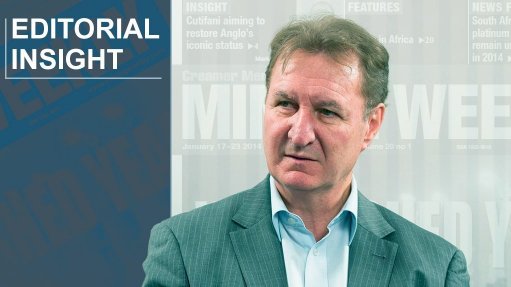
It is the age of informal triumph. Informal land occupiers are able to stop formal mining applications by winning victories in the law courts.
Informal mining under the City of Gold of Johannesburg wins vocal support, while formal officially licensed mining is vocally condemned.
Informal mining is allowed to proceed, while formal mining is opposed. Those who do not rehabilitate the environment they disturb are left undisturbed, while those who conscientiously rehabilitate go unrecognised.
Informal mining does not assist communities; formal mining has to submit social labour plans that are regularly upscaled.
That is the reality of the day, and it is not what the country is accustomed to experiencing in the resources sector.
It is thus not surprising that Mineral Resources Minister Gwede Mantashe confirmed in December that he would appeal the Xolobeni judgment of the Pretoria High Court, which has placed more authority in the hands of informal land ownership of the Wild Coast than in the authority that Parliament has given the Department of Mineral Resources to grant mining licences.
Informal land occupation is now king. It can decree that wealth creation may not take place, even in a widely beneficial form that protects Mother Earth and spreads across the length and breadth of the country.
As it stands, the Mineral Resources Minister may not award a mining right at Xolobeni, in the Eastern Cape.
The full judgment, as it stands, takes, in the words of the Minister, the job of awarding of mining licences away from the Department of Mineral Resources and gives it to local communities.
Mantashe was delivering the keynote address at a book launch function of the Mapungubwe Institute for Strategic Reflection, in Pretoria. The title of the book is The Future of Mining in South Africa: Sunset or Sunrise?
As things stand, one should not be criticised for declaring ‘Sunset’ the answer to the question that the book title poses.
Investment in exploration and mining is very unlikely if local communities continue to have all the say.
Investors will go where things look far more promising and South Africa’s neighbours are telling the world that they are a better bet.
Neighbour Botswana has been buying advertisements in leading northern hemisphere publications to inform potential investors that it wants to go all out to make investments work for investors.
It tells them that it has no foreign exchange controls. It adds that corporations pay tax at a rate of 15%. Machinery and equipment invested for manufacturing purposes are not subject to import duty and investors are given preferential access to the Southern African Development Community’s marketplace of more than 290-million people.
The biggest blow of all that it delivers to South Africa is that it is rated as the least corrupt country in Africa by Transparency International.
As most of South Africa’s problems are self-inflicted, South Africa can solve them by introducing sound policies and enforcing sound laws.